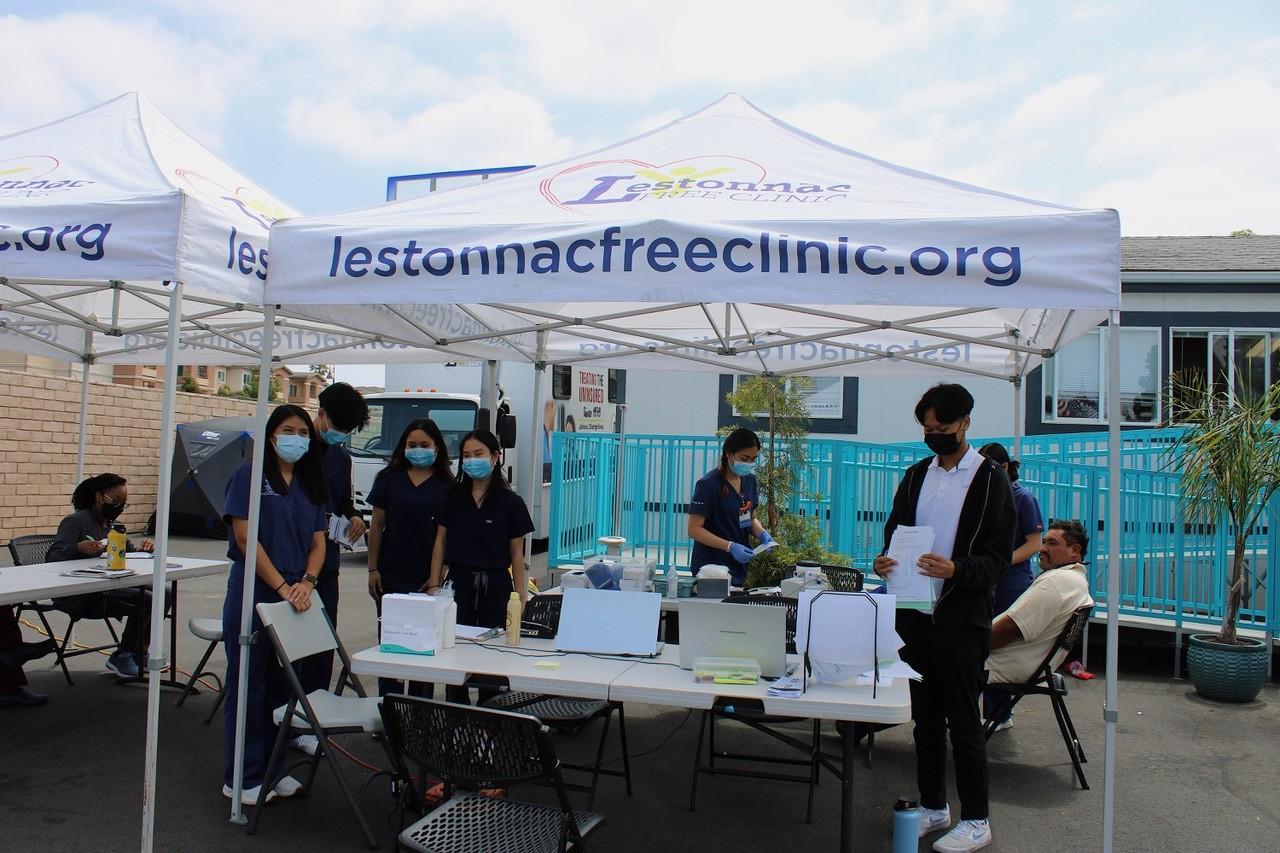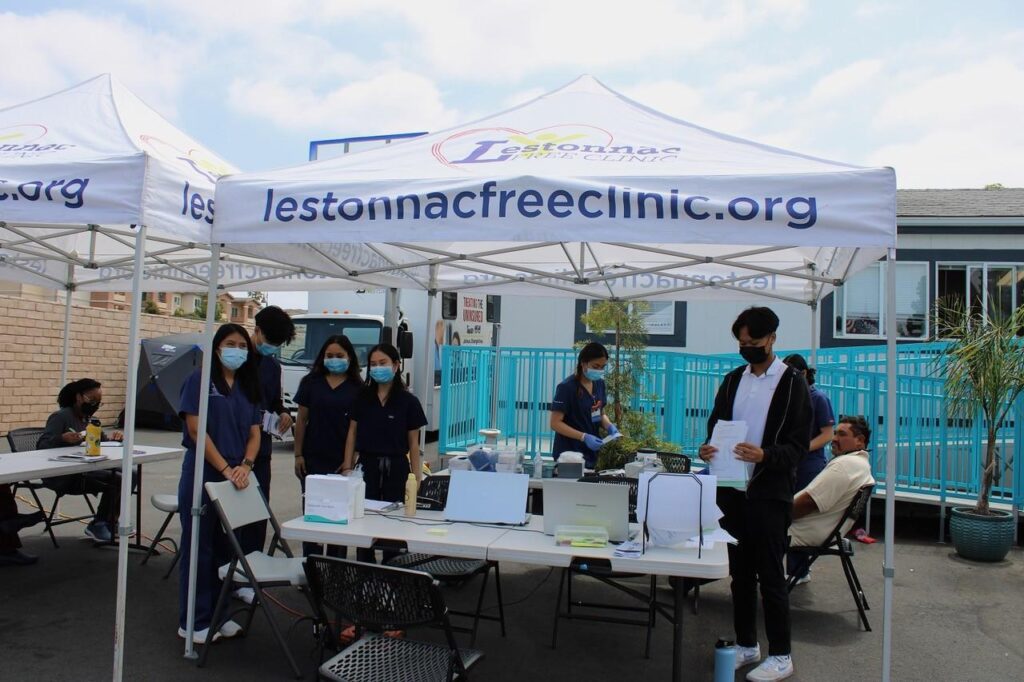

California is transforming Medi-Cal to better support and meet the whole-person care needs of members experiencing, or at risk of homelessness.
Medi-Cal provides members with access to new and improved services to get well-rounded care that goes beyond the doctor’s office or hospital and addresses their physical and mental health, and also social drivers of one’s health such as housing.
Medi-Cal is opening the door to essential health care services for the most vulnerable populations, no matter where they live or seek care.
Enhanced Care Management
Enhanced Care Management is a new Medi-Cal benefit that assigns a dedicated Lead Care Manager, a personal guide who helps qualified Medi-Cal members navigate all medical, dental, social, and community services such as housing navigation, housing deposits, and more.
Enhanced Care Management takes a whole-person, interdisciplinary approach to care to address clinical and non-clinical needs of members with the most complex medical and social need and serves as a safety net of care coordination for high-risk groups, including, but not limited to, individuals experiencing homelessness.
“Our unhoused population has inadequate access to shelters and experiences a lack of food and care,” said Glenn Tsang, Policy Advisor for Homelessness and Housing for the California Department of Health Care Services. “These members tend to have extensive medical and mental health needs that are difficult to address in an unstable living environment. To help address their needs, the Enhanced Care Management benefit builds consistent connections to medical care, mental health care, substance use disorder treatment, and housing stabilization services.”
Addressing Health-Related Social Needs through Community Supports
Community Supports are services or care settings, in addition to those required under the California Medicaid State Plan, that Medi-Cal managed care plans may elect to offer. The goal of Community Supports is to provide services that address a member’s health-related social needs that may be exacerbating their health condition, such as housing instability. Among the 14 services available as Community Supports services, six are specifically focused on helping unhoused members.
Many of these services empower high-risk individuals and families to live healthier lives in less restrictive settings and avoid unnecessary emergency visits and inpatient nursing facility admissions. They include services that go beyond traditional care received in a doctor’s office and may include housing deposits, housing transition and navigation services, housing tenancy and sustaining services, short-term post-hospitalization, recuperative care, and day habilitation.
Street Medicine
Street medicine is a set of health and social services developed specifically to address the unique needs and circumstances of individuals experiencing unsheltered homelessness, delivered directly to them in their own environment. The fundamental approach of street medicine is to engage people experiencing unsheltered homelessness exactly where they are and on their own terms to maximally reduce or eliminate barriers to care access and follow-through.
“We meet people where they are, providing care in the environment with which they’re most comfortable,” said Dr. Gary Tsai, Medical Director of the Los Angeles County Department of Health Services.
Medi-Cal Expansion
Starting on January 1, 2024, all eligible Californians qualify for full scope Medi-Cal coverage, regardless of immigration status.
This expansion allows even more Medi-Cal members to potentially qualify for Enhanced Care Management and Community Supports, among other services, to improve outcomes for California’s most vulnerable populations.
“By expanding Medi-Cal, we’re addressing the root causes of health disparities and providing equitable access to quality health care, leading to a healthy California for all,” said Tsang.
How Providers Support Members
Providers are vital in delivering Medi-Cal’s expanded services, ensuring the most vulnerable members receive the care they need. These providers include, but are not limited to, housing service providers, housing organizations, and other organizations that have an existing footprint consistent with Community Supports activities and in the communities they serve. Providers are essential in providing dedicated care management, ensuring seamless transitions and continuous support across various housing settings.
Street medicine providers also offer direct medical care to individuals on the streets, build trust by consistently providing compassionate services, and use comprehensive care management platforms for efficient coordination. Providers include Federally Qualified Health Centers, mobile medicine units, and many other organizations that provide care to unsheltered members living on the street.
They collaborate with community-based organizations and community support systems like schools, food banks, and housing agencies, and offer proactive support when patients transition through emergency departments, homelessness, or incarceration.
Encouragement to Seek Services
If you or someone you know is experiencing homelessness or is at risk of homelessness, Medi-Cal’s expanded services offer vital support for members enrolled in a managed care plan to improve their health and well-being.
For more information, call the state’s Medi-Cal Managed Care Office of the Ombudsman at (888) 452-8609 or email MMCDOmbudsmanOffice@dhcs.ca.gov.
In Los Angeles County, Medi-Cal recipients can contact the following managed care plans:
* L.A. Care Health Plan: 888-839-9909
* Health Net Community Solutions: 800-675-6110
* Kaiser Permanente: 855-839-7613
So, if you are at risk of or experiencing homelessness in Los Angeles County, your health and well-being matter. Medi-Cal’s expanded services are here to support you every step of the way.




